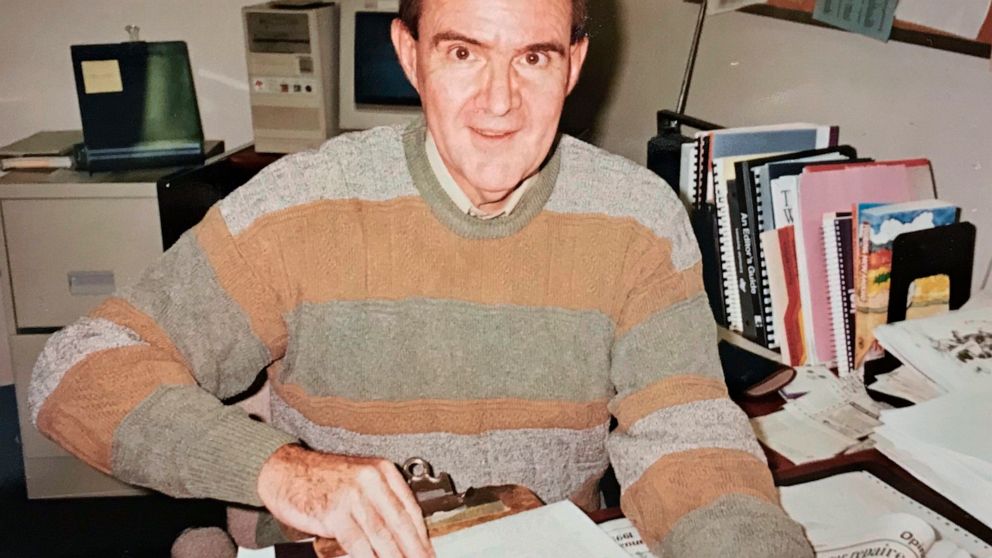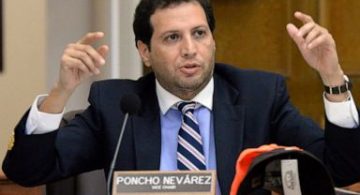
Veteran journalist and author Richard Benke is being remembered for never wavering from the challenges of chasing a good story and for his dedication to accuracy during a career that spanned decades in newsrooms in California and New Mexico.
Benke died June 18 of Parkinson’s-related dementia at an assisted care facility in Nevada, his family said. He was one day shy of his 77th birthday.
His passion for reporting and editing was born from an early love of writing. After growing up in Southern California, he majored in creative writing at Northwestern University before returning to work at the Pasadena Star-News.
He was hired by The Associated Press in 1975, starting what would be a long career with the news organization that saw him cover everything from breaking news in Los Angeles to illegal immigration along the New Mexico border.
He was tenacious with a knack for writing some of the finest leads, all while under the pressure that came along with working for a wire service, said Matt Mygatt, who worked with Benke in the Albuquerque bureau.
“He epitomized the AP, demanding absolute accuracy and speed in writing a story,” Mygatt said. “He was like a junkyard dog — he wouldn’t let go of a story until he had every detail and it was flawlessly written.”
In Albuquerque and Los Angeles, Benke’s status as a veteran newsman meant he was first in line for breaking in young reporters. He was known for setting the bar high.
When unchained from the desk, Benke reported from around New Mexico. He covered Julia Roberts’ wedding in the mountain retreat of Taos and the boom in the dairy industry on the state’s eastern plains.
In a dispatch from the U.S.-Mexico border in 1998, he wrote about what was then record-setting illegal immigration. He described groups of men, women and children gathered with rucksacks and water bottles waiting for dark so they could cross the barbed wire that intermittently defined the border.
He also tracked the case of Wen Ho Lee, a Taiwan-born scientist who made international news when he was fired from Los Alamos National Laboratory and jailed in 1999 on charges of mishandling nuclear weapons secrets.
Lee spent nine months in solitary confinement and was released after the government dropped all but one charge.
Lee’s memoir was much anticipated. Despite an embargo, a book shop in Los Alamos decided to release it early, said Kathy McCormack, former news editor.
“Dick made the trek from Albuquerque up there and back during a storm in January 2002, speed-read the book and worked on the story into the night. We were alone with it on the national wire for quite some time,” she said. “I always admired his dedication.”
No briefcase or bag in hand, Benke would show up for his shift in Los Angeles, stuff a pack of gum in his mouth and start churning out copy, said Brian Bland, a former AP newsman.
“Like all great editors, he was a teacher,” Bland said.
A master of the pun, Benke was known for his humor and quick wit, something that won over the hearts of the staff at the care facility where he spent his last months, said his wife, Karen.
Getting the story right was always the most important thing for her husband, she said. That meant absorbing everything he could about his subjects, poring over the details, pulling together the context that would make readers care and paying attention to every inflection.
“That’s the way he approached every story, just making sure it was fair and getting it right and having all the facts before anything went out,” she said.
Parkinson’s led to an early retirement from the newsroom. Benke went on to write two mysteries based on his time in New Mexico.
Benke also played the saxophone, loved art and fishing and built his family a cabin in northern New Mexico.
He is survived by his wife; son David Benke; daughter Anne Benke Walker; step-children Richard Kuntz, Jr., Gregory Kuntz and Kathy Kuntz; brother Donald Benke; sisters Marcia Nunnery and Barbara Pinna; sister-in-law Julie Forsberg; three step-grandchildren and one step-great-grandchild.





